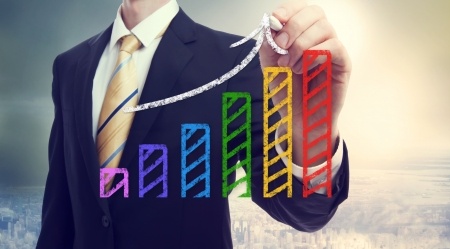By Jorge Sukarie Neto, president of ABES
 The Brazilian economy has interesting aspects to analyze. One is the general perception of the citizen, always with a more negative and critical tendency, and the other is what the numbers actually show. The year 2013 registered a positive increase in the country's gross domestic production, surprising some sectors that had much more conservative forecasts. And even in this scenario, there is still room for growth for a country with a strong entrepreneurial tendency. The Achilles heel, however, is still in issues that have already been overcome by economies of longer-term stability, especially in respect of intellectual property.
The Brazilian economy has interesting aspects to analyze. One is the general perception of the citizen, always with a more negative and critical tendency, and the other is what the numbers actually show. The year 2013 registered a positive increase in the country's gross domestic production, surprising some sectors that had much more conservative forecasts. And even in this scenario, there is still room for growth for a country with a strong entrepreneurial tendency. The Achilles heel, however, is still in issues that have already been overcome by economies of longer-term stability, especially in respect of intellectual property.
Software, protected by copyright, is intrinsically related to economic growth, the development of new jobs and technological innovation. The country has already made great strides in protecting intellectual property. For example, in the case of software, we went from a piracy rate of over 90% in the 1980s and today we are at 53%. There is still a long way to go, but it is necessary to encourage healthy and fair competition between companies. Because respect for property rights shows a maturing and mutual encouragement among all participants in the industry.
A recent study points out that we still have a lot to improve in this aspect at the expense of a high cost to the citizen. IDC indicated that, in 2013, consumers spent 1.5 billion hours and US$ 22 billion to identify, repair and recover their machines for the lack of protection caused by the use of illegal programs that left them prone to virus attack. For this year, the forecast indicates a financial increase in the same proportions, 1.4 billion hours at a cost of US$ 25 billion. In this horizon, the loss for Brazilian users will be around US$ 700 million and 44.2 million hours. For domestic companies, the loss could be much greater, US$ 4.6 billion.
It's not little. These hours and costs reflect in less productivity, loss of important information, often priceless. However, this damage is still not reflected in the improvement of user awareness and the search for a safer program guaranteed by the original software vendors. The study points out that 43% of respondents who indicated some type of damage resulting from the use of non-original software, such as data loss; use of information for unauthorized transactions/fraud; and the invasion of emails, social networks and bank accounts, claim not to have installed security updates to make their machines less immune to attacks.
Educational guidance, such as that carried out by the Legal Entrepreneur initiative, created by ABES, thus becomes even more important. This program carries out actions specifically aimed at Brazilian entrepreneurs, providing information on the correct use of software licensing. In addition to also clarifying and providing guidance on the data related to the technical damage involved in the use of pirates, the legal risks and the most suitable programs for software asset management.
We know that the final choice is always the user's, but we reinforce our commitment to being active in the role of guiding companies on sustainable IT management. A competitive market is made with equitable rules so that everyone can show their real role in innovation and production. Intellectual property is a prime example of them.












